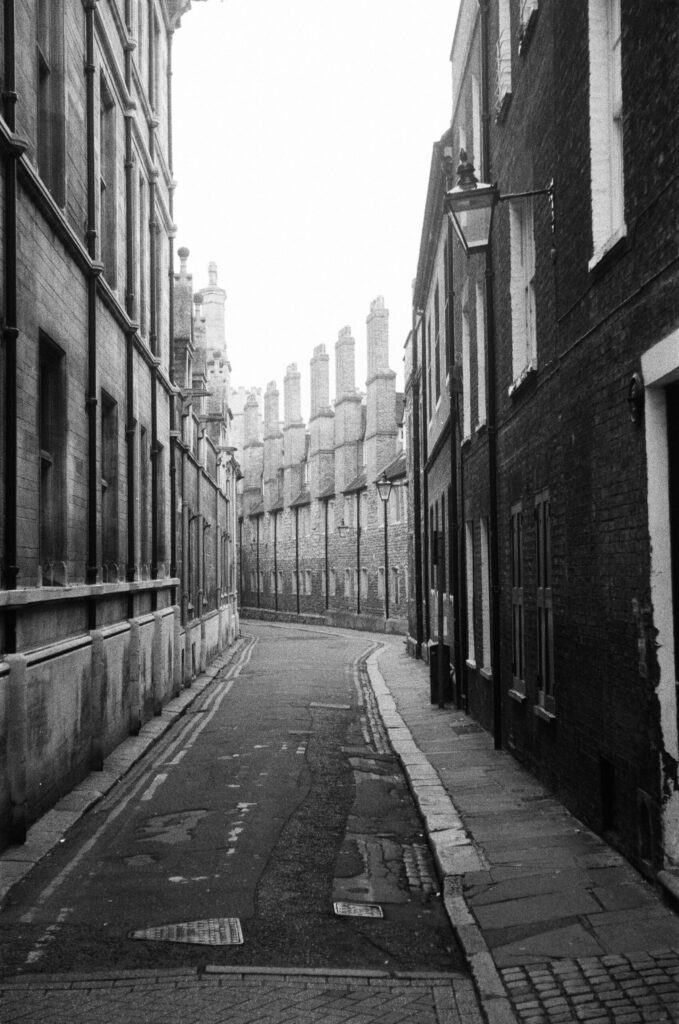
The Echo in the Alley: A Story of Understanding
In 1936 London, an unlikely friendship between three children challenges the deep-seated prejudices of a world on the brink.
By Michael Lamonaca – May 23, 2025
The cobblestones of London’s East End shimmered under a weak spring sun in 1936, a deceptive calm before the storm that would soon engulf Europe. For twelve-year-old Thomas, the alleyways behind his father’s bakery were a labyrinth of adventure, filled with echoes of old songs and the scent of rising bread. It was there he first truly met Isaac, a boy a year older, with eyes that seemed to hold stories Thomas couldn’t quite grasp, and a quiet dignity that set him apart. Isaac’s family had recently arrived from Poland, seeking refuge from a rising tide of fear.

michael-richardson-unsplash
Their friendship, initially forged over shared games of marbles and whispered secrets, was soon joined by Sofia, a spirited Italian girl with a laugh as bright as the ribbons in her hair. Her family ran a small trattoria, filling the air with garlic and oregano, a stark contrast to the familiar scent of yeast. The three of them, a curious trio of English, Jewish, and Italian, found common ground in the universal language of childhood play, oblivious to the simmering tensions that often boiled over in the adult world.
One blustery afternoon, their game of kick-the-can was abruptly halted. A group of older boys, their faces contorted by a sneer Thomas had seen on grown-ups, blocked the alley. “Look, it’s the Jew-boy and his cronies,” one spat, his gaze lingering on Isaac. “Go back to where you came from, usurer’s brat!”
Thomas felt a knot tighten in his stomach. He’d heard words like “Jew-boy” before, whispered in hushed tones, often associated with stories of greed or mysterious rituals. His uncle, a man he respected, had once grumbled about “them” controlling the banks. He’d never questioned it, never connected it to Isaac, who shared his last biscuit and laughed at his silly jokes.
Isaac, usually so composed, flinched. His face hardened, a flicker of ancient pain in his eyes. “We are from here now,” he said, his voice trembling slightly but firm. “And my father is a tailor, not a moneylender.”
The older boy laughed, a harsh, grating sound. “Same difference. Always after money, always taking what’s not theirs.”
Sofia, her hands on her hips, stepped forward. “What are you talking about? Isaac’s father works hard! He makes beautiful suits!” Her Italian accent, usually a source of amusement for the boys, now carried a sharp edge of indignation.
Later, huddled in the quiet corner of Thomas’s bakery, the scent of warm bread a comforting blanket, Isaac explained. “They say these things because they don’t know us. Or because they need someone to blame when things are hard.” He spoke of the stories his grandfather told, of expulsions from lands like England centuries ago, of being forced into certain trades, then blamed for them. “They called us ‘Christ-killers’ in the old country,” he whispered, “and now they call us ‘usurers.’ It changes, but the hate stays the same.”

Thomas listened, a new weight settling in his chest. The casual remarks he’d heard, the vague stereotypes, suddenly coalesced into a chilling pattern. He thought of his uncle’s words, realizing they weren’t just harmless grumbles, but echoes of a much older, deeper prejudice. It was easier, he realized, to blame an “other” for problems than to look at the real reasons.
Sofia, whose family had faced their share of suspicion as newcomers, nodded. “My nonna says people are afraid of what they don’t understand. And sometimes, they are told to be afraid.” She remembered tales from her village of how whispers could turn neighbors into strangers, and strangers into enemies.
The afternoon ended not with games, but with a quiet understanding. Thomas saw Isaac not just as his friend, but as a threat in a long, painful history. He understood that the insults hurled in the alley were not just about Isaac, but about centuries of scapegoating, of economic resentment, and of religious animosity twisted into hatred. The “otherness” that set Isaac apart was not a flaw, but a target for those seeking easy answers.
As the sun dipped below the rooftops, casting long shadows, Thomas knew his world had subtly shifted. The games in the alley would continue, but for him, they would now be played with a new awareness. The echoes of prejudice were still there, but now, so too was the quiet resolve to challenge them, one conversation, one friendship, at a time. The dance of understanding, though sometimes stumbling, had begun.
#HistoricalFiction #Antisemitism #Prejudice #Understanding #Friendship #LondonHistory #SocialJustice #Humanity #ShortStory